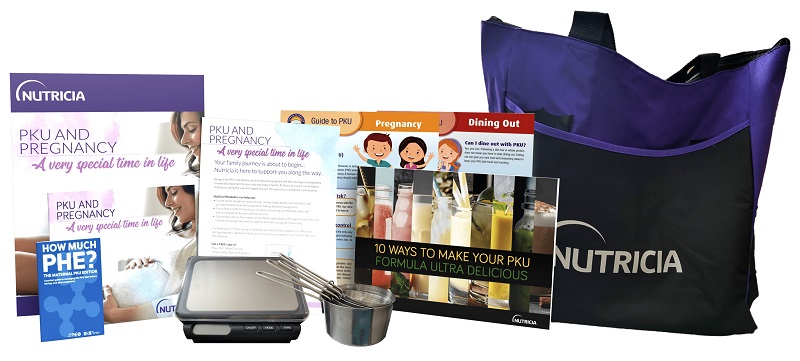
The journey to motherhood, when you have Phenylketonuria (PKU), should begin with your metabolic clinic. It is essential to work with your clinic before, during and even after pregnancy. Only your clinic can provide the best guidance to ensure the best outcome for you and your baby. They will work with you to ensure well-controlled blood phenylalanine (PHE) levels prior to pregnancy and throughout your pregnancy to prevent the negative effects of elevated PHE.
Studies in maternal PKU (MPKU) have shown uncontrolled blood PHE levels during pregnancy can cause the following outcomes for the baby:
- Microcephaly (small head size)
- Intellectual disability
- Behavioral issues
- Congenital heart defects (CHD)
- Low birth weight and reduced length for age
Keeping your PHE levels within recommended range will help protect your baby from these risks.
Speak with your metabolic healthcare professional regarding recommended PHE levels during pregnancy.
Steps to getting PHE levels in the recommended range:

Recommit yourself to the low PHE diet
- Explore vegan recipes with the plant-based protein ingredient omitted (such as nuts, soy, tofu, etc.)
- Change regular bread, rice and pasta to low protein versions
Find a PKU formula you enjoy
- Nutricia offers the widest range of PKU formula options. You are sure to find one that meets your personal taste and needs. Check out Nutricia’s formula options here.
- Create a plan and stick to it – this will help to make sure you take all your recommended formula each day at scheduled times.
Make a new routine
- Regular blood samples (blood spots) will let you know when your PHE levels are in the ‘safe-range’ for pregnancy. Set a reminder on your calendar or cellphone to send your blood spots to your clinic on a regular basis (as instructed by your clinic).
- Meal planning in advance will help make food shopping and new dining habits easier.
Get connected
- Join an online Maternal PKU group, talk and get to know other women with PKU who are pregnant, planning to become pregnant or have tips to share from their past pregnancy experience.
- Learn more about the National PKU Alliance (NPKUA) Maternal Mentor Program.

For more helpful tips and tools to help get you ready for this next stage of life, request a Nutricia Maternal PKU Starter Kit.
Continue reading our PKU and Pregnancy blog series with Low Protein Diet Tips to Help you Get Through the 1st Trimester of Pregnancy.
All products shown are medical foods are for the dietary management of Phenylketonuria (PKU) and must be used under medical supervision. Please consult your metabolic healthcare professional prior to making any changes to your PKU diet.
© 2019 Nutricia North America
